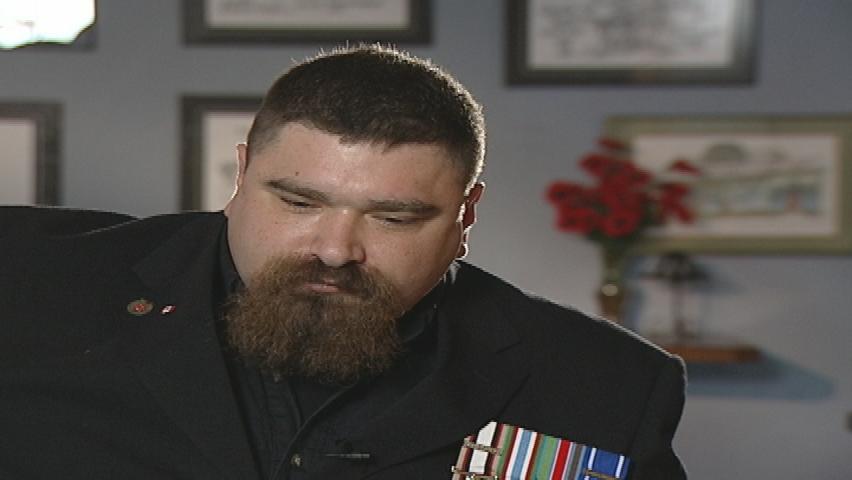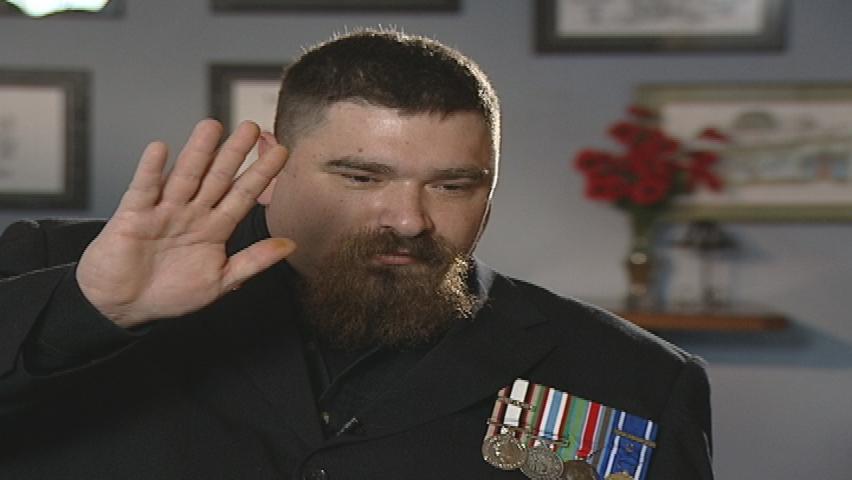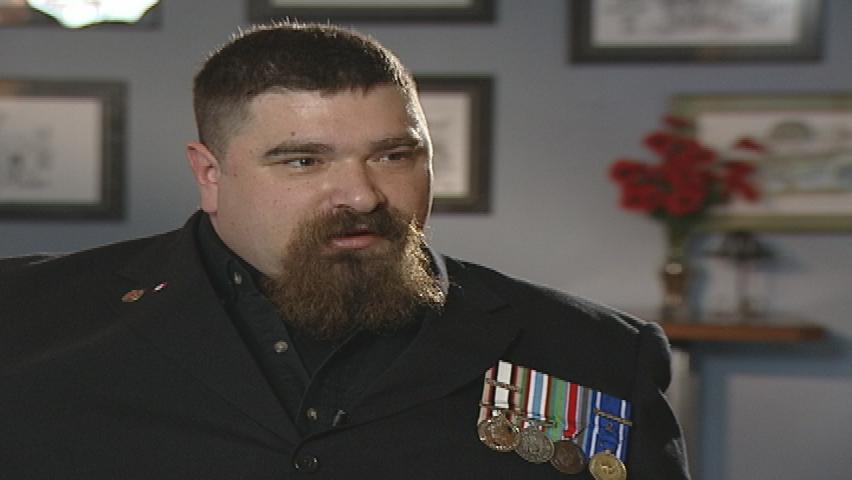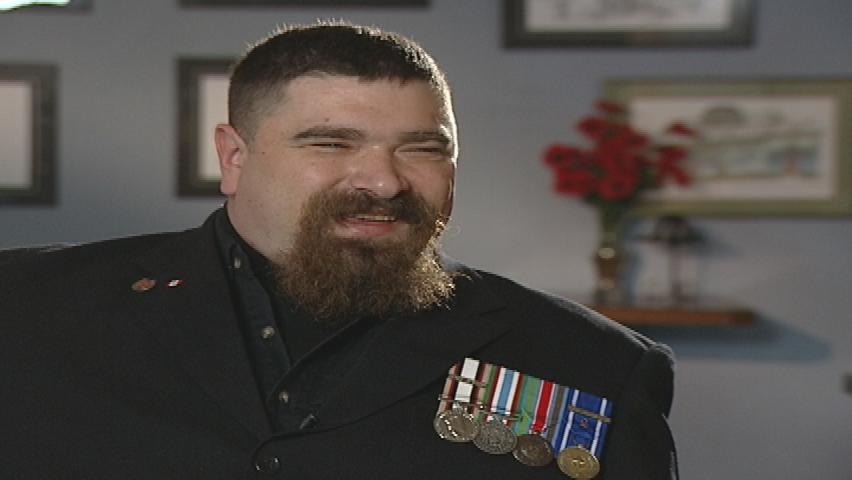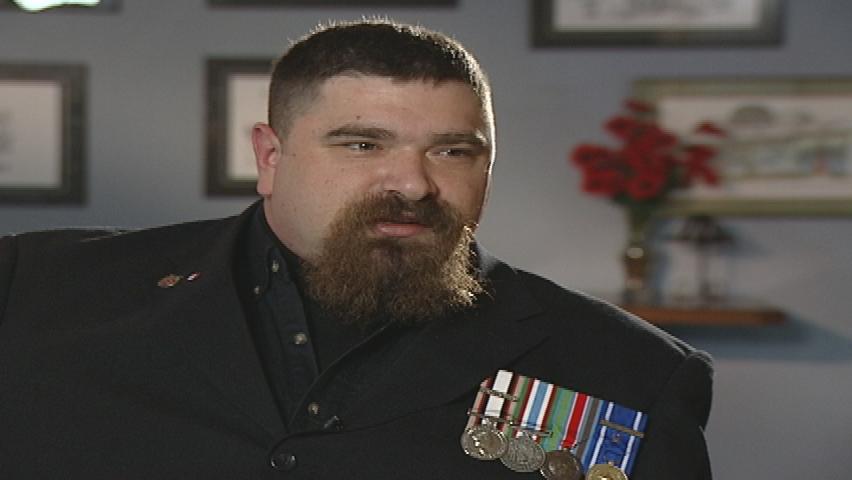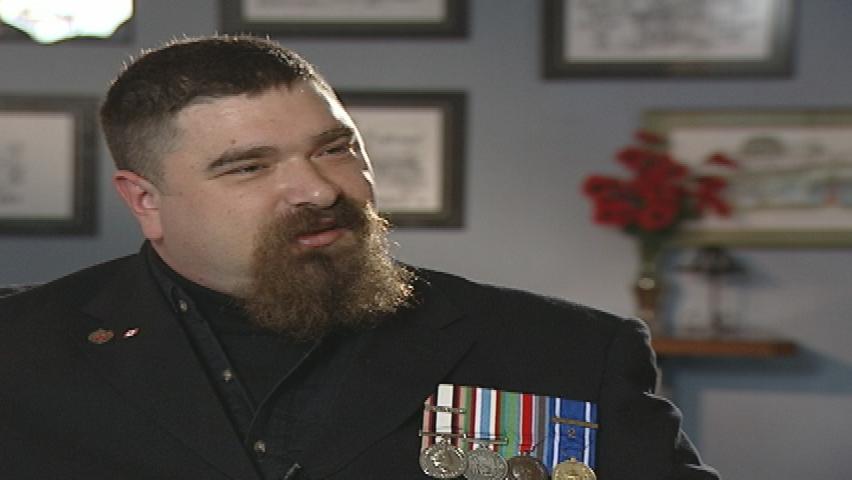Rules of Engagement
Heroes Remember
Rules of Engagement
The rules of engagement, they don't, I'd actually never even
heard of the term until my first tour because the rules of
engagement normally are just find the enemy, kill them and
there's no, no ifs, ands or buts so it's just, was never dwelled
on. It wasn't until we were about to go overseas on a UN tour
that, that I'd even understood the rules of engagement at all
and they were, I remember they brought out some paper work and
it was a big stack of paper work like this, said, "These are our
rules of engagement," and we boiled it down to a card, a card
about this big, with very fine printing and even that was
written on both sides. And, you know, even that was too much to
read and if you're under contact, like some guys taped them to
their rifle butts, but you know whose got, if you're being shot
at you're not going to be reading a card. You have to know it
and even, even as, as pared down as we could make it, it was
still way too complicated and, and you know and that's, that's
what we had and they were, and they were changing also. They
weren't fluxed, they weren't written in stone and they'd always
say, you know they'd change a word here and there and you know,
you change one word and everything's different, you know, it's
the nature of these things. It's like a legal contract, you
know, you change one word and that's the whole,
the whole, the whole meaning is different.
So that was my first real experience with the rules of
engagement and, and we were, and then the, I think one of the,
the big things I took away from that is we were called a
protection force, UNPFOR was a protection force, but we didn't
have the rules of engagement to protect anyone. We could only
protect ourselves and, you know, that, that came into play in my
tour, hugely, you know, it's such a difference because we were
suppose to go over there as a protection force with, that's what
we were supposed to do was go in there and kick some ass and
protect everybody, but that's not what we did. That's not how
it turned out. I mean the rules of engagement were on
everybody's minds because it, it really affected your,
your time over there.
I was on a, on an OP. We'd, we'd basically set up an OP on a
vehicle and on a defensive position and it was, it was down in,
in, well we, we called it Serb Hell Croatia at the time, it was
on the Serb side, but it was near the border with Croatia and
there was a lot of, there was a lot of back and forth and there
was a lot of action going on in that area. And I was on OP,
basically in a, my vehicle was in a hold down position. Which
is like a dug out, so that the vehicle is basically covered and
only the top sticks out and we had, we had night vision set up
on top of it and I was observing. There was basically a cops of
woods to my front and you know some, some houses off to the
side, some farm yards. And that was basically what I was
observing and then there was, I could hear a lot of shooting in
there and the shot reps, you know, sent in shot reps, that was
fine it was wild and then I could hear screaming and I could
hear, I could hear, I could hear screaming constantly and then
boom, you'd be shot and then it'd be quiet and then it would
start up again and it was different voices. It was different
people and it really bothered me and I, I reported it and it was
the middle of the night. I was the only one awake at the time
and I, I woke up my, my section 2IC and he reported it into the,
again and basically there was nothing we could do about it and
it was reported back, "Yeah, stop sending this reports in. We
know about it. There's nothing we can do," and that's it. And
it just carried on and it was terrible. I have, I still have
nightmares about it to this day, but it's, the rules of
engagement really let us down and let, let the people down over
there and I, I think we should have never been put in that
position. I mean we should never be, if we don't have the means
necessary to protect we shouldn't even be there.
Related Videos
- Date modified:




